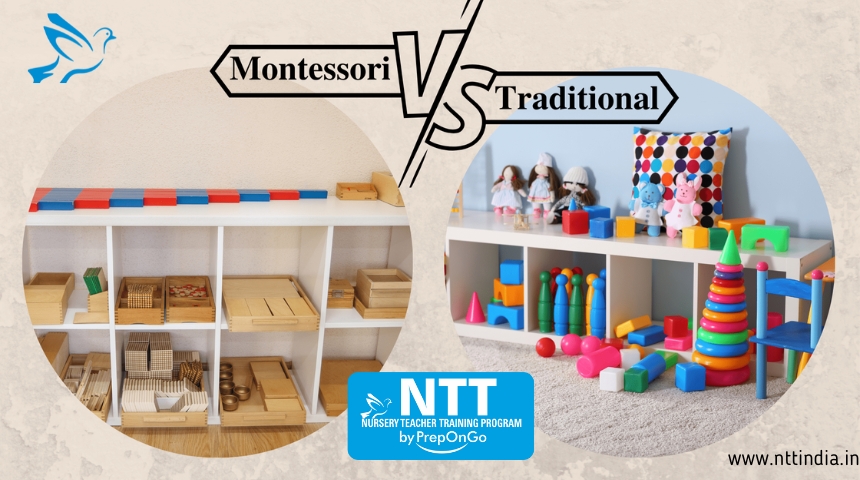Montessori vs. Traditional Nursery Education

Montessori vs. Traditional Nursery education. Choosing the right nursery education for your child is a crucial decision. Two popular options are Montessori and traditional nursery education. Both have their unique approaches to teaching and learning. In this article, we will explore the differences between Montessori and traditional nursery education to help you make an informed choice.
What is Montessori Education?
Montessori education is a child-centered approach developed by Dr. Maria Montessori in the early 1900s. It focuses on fostering independence, creativity, and a love of learning. Here are some key features of Montessori education:
- Child-Led Learning: In Montessori classrooms, children choose their activities and work at their own pace. This encourages self-motivation and independence.
- Mixed-Age Groups: Children of different ages learn together, which promotes social skills and peer learning.
- Hands-On Activities: Montessori emphasizes learning through hands-on activities and sensory experiences. Children use specially designed materials to explore concepts.
- Prepared Environment: Classrooms are carefully organized to support independent learning. Everything is within a child’s reach and arranged to promote exploration.
What is Traditional Nursery Education?
Traditional nursery education follows a more structured and teacher-led approach. It focuses on preparing children for formal schooling through a set curriculum. Here are some key features of traditional nursery education:
- Teacher-Led Instruction: Teachers guide the learning process, often using a set schedule and curriculum. This ensures all children cover the same material.
- Same-Age Groups: Children are grouped by age, which can make it easier to tailor activities to a specific developmental stage.
- Focus on Academics: Traditional nurseries often emphasize academic skills such as reading, writing, and arithmetic. Activities are designed to prepare children for primary school.
- Structured Environment: Classrooms are organized around specific learning areas, and activities are usually teacher-directed.
Comparing Montessori and Traditional Nursery Education
Let’s compare Montessori vs. traditional nursery education based on several factors:
- Learning Pace:
- Montessori: Children learn at their own pace, which can boost confidence and foster a love of learning.
- Traditional: Learning is more structured, which can provide a clear progression and prepare children for school expectations.
- Role of the Teacher:
- Montessori: Teachers act as guides, facilitating learning rather than directing it. They observe and support children’s individual interests.
- Traditional: Teachers play a more central role, leading the class and delivering instruction based on a set curriculum.
- Social Interaction:
- Montessori: Mixed-age classrooms promote peer learning and mentorship, helping children develop strong social skills.
- Traditional: Same-age classrooms can provide a more uniform social experience, with activities tailored to a specific age group.
- Curriculum and Activities:
- Montessori: Focuses on hands-on, sensory-based learning with materials that encourage exploration.
- Traditional: Often includes more structured activities aimed at academic readiness, such as worksheets and group lessons.
Which is Right for Your Child?
The choice between Montessori vs. traditional nursery education depends on your child’s personality and learning style. Montessori may be a better fit for children who thrive in a self-directed, flexible environment. On the other hand, traditional nursery education might be ideal for children who benefit from structure and teacher guidance.
Conclusion
Both Montessori and traditional nursery education have their own strengths. Understanding the differences can help you choose the best learning environment for your child. By considering your child’s needs and the unique features of each approach, you can make an informed decision that sets the foundation for their future learning success.
Choosing between Montessori vs. traditional nursery education is an important step in your child’s educational journey. Whatever you decide, the goal is to provide a nurturing and stimulating environment that supports their growth and development.
